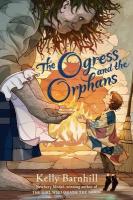
Social contagion. That's what lies at the heart of this book; that's what this book is about. How thoughts, feelings, attitudes, beliefs, and actions spread from one person to another to another and so on. Trust is contagious; when one person behaves trustingly, others respond in kind and the dynamic spreads. Suspicion is contagious; when one person acts from suspicion, others respond in kind and the dynamic spreads. Everything is contagious, spreading socially through networks of people.
This book is about a town full of people. Like people everywhere, each person is somewhat good and somewhat bad. Which they choose to project and act on, the good or the bad, changes with circumstances. This book tells the story of how the people in this town influence each other to do good and bad things together, to be kind and unkind people in turn. At times, the town is a wonderful community; at others, it is quite horrible.
This book is lovely. And, at times, heartbreaking, sad, frustrating, and suspenseful. Barnhill weaves a magical tale with a timeless, fairy tale quality. Visiting it, even during the difficult periods, is always enchanting. It takes readers away to a special place and returns them, in the end, better equipped to be good neighbors and citizens capable of spreading more goodness through their social connections.
This is a book about an Ogress. An Ogress with no community, who wants to be part of one, who must always avoid the sun, who settles on the outskirts of a human town. It's about a group of orphans who live in a wonderful, loving, sheltered orphan house, surrounded by a town that has fallen on hard times, afraid to trust anyone outside their home's walls. It is about a town that has lost its library, its school, its park, and its sense of trust, friendliness, community, and cohesiveness. It is about the desire to blame. It is about a mayor. A dragon. Groups of crows, sheep, cats, and a dog. A stone that tells stories. Trees that tell stories. It is about stories. And hoarded wealth.
It is about what makes people--and the world--good and bad.
It's a new favorite.
A few excerpts:
He explained that a man in town had been deceiving people. For years, probably. Taking what he should not take and telling people to live with less and less, so as a result the townspeople had begun looking for someone to blame.
-----
We have been told since we were small that the bad people outnumber the good. But I do no believe that is true. We have seen in the Orphan House recently that it only takes some people doing good to encourage many other people to do good. One good person can inspire other people to do good things. Good is not a number. Good is more than that. With good, the more you give, the more you have. It is the best sort of magic.
-----
They came. The cobbler's wife made cookies. She handed one to everyone, whether they wanted it or not. People shared the books they had received. They listened to others share their own books. And they found themselves remembering the Library. Even the people who were too young to remember the Library found themselves remembering. They remembered that a story, in the mind of the reader, is like music. And discussing stories among other minds and other hearts feels like a symphony. They remembered how ideas make their own light, and how words have their own mass and weight and being.
-----
A neighbor exists without condition--if I were to declare that this person is my neighbor and that person is not, then it is I, and not they, who have failed at neighborliness. It is only by claiming all as your neighbors, and behaving as though all are your neighbors, that we become good neighbors ourselves. The act of being a good neighbor must always begin with us.
